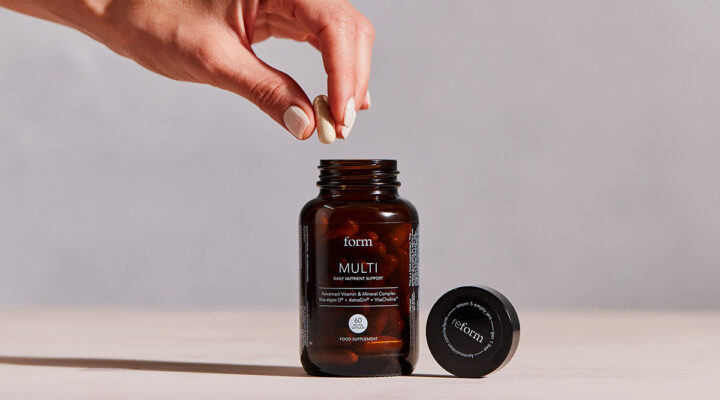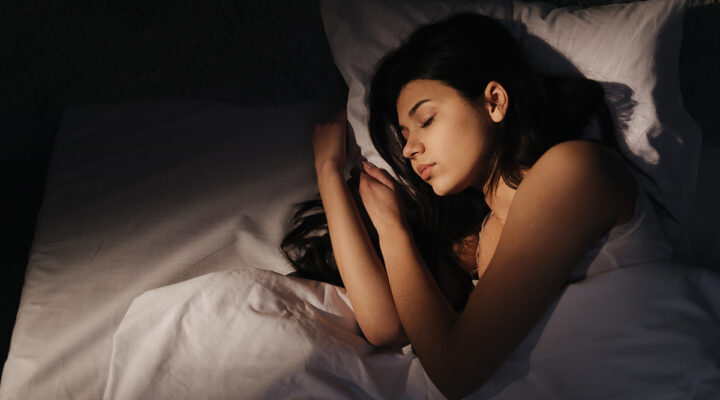Is It Possible to Balance Your Hormones Naturally?

The phrase ‘balance your hormones’ often crops up on health podcasts and TikTok posts, and there’s a whole raft of luxury supplements, bestselling books and powdered drinks that promise to keep your endocrine system ticking along uninterrupted.
But ‘balance’ is a vague term and many of us feel confused about what it really means. How do you know if your hormones are out of sync? And is there anything you can do to remedy the problem?
We spoke to Dr Charlotte Norton and Dr Martin Kinsella, co-founders of the at-home hormone clinic BioID Health, to get the lowdown on hormones and their impact on our health.
Why are hormones important?
Acting as the body’s natural chemical messengers, hormones control many of the body’s crucial functions like mood, health, hunger and tiredness, setting the stage for our overall wellness. Some of our key hormones include adrenaline, cortisol and the sexual and reproductive hormones oestrogen, progesterone and testosterone.
As Dr Kinsella explains: “A lot of people don’t realise how important hormones are for practically every aspect of our health, which is why it’s vital that we start to prioritise them, whatever our age.
“We tend to think of certain key chapters in our life – such as puberty, pregnancy and menopause – as being the only time that hormones come into play, but the truth is that our hormones influence our health each and every day.
“Hormones impact more than just our mood, too – they enable daily bodily functions, reproduction, movement and cognitive function.”
Our hormones are secreted by various glands around the body including the thyroid and adrenal glands, and travel through the bloodstream to reach their target organ. You could think of your endocrine system like an orchestral symphony; ideally, you want all the instruments playing in tune and in time. But if one or more hormonal elements go wrong, the whole production can fall into chaos.
When hormones are in good working order, your body produces the exact amount of each hormone needed for various processes to keep you healthy. It’s a delicate dance across the entire body that can easily lose its regular rhythm.

What are the signs that your hormones might be out of balance?
According to statistics, 36% of UK adults struggle to get to sleep at least on a weekly basis, as many as 43% of women have experienced low sex drive and 19% of adults aged 25 and older have struggled with adult acne.
“Hormone imbalances could be to blame for all of these issues,” notes Kinsella. “As well as the well-known side effects of hormone imbalances, there are lesser-known symptoms too like itchy skin, bleeding gums and brittle fingernails.’”
Fluctuations in mood, anxiety or depression, irregular or painful periods, headaches, insomnia, gastrointestinal issues, and increased hair growth in the face or chest can all be additional red flags.
Plus, Kinsella says a hormone imbalance can also result in a “loss of sex drive, erectile dysfunction, mood swings and irritability”, and you may also notice you’re low on energy and struggling to concentrate.
“Sadly, as a lot of the symptoms can be caused by factors such as stress, depression and anxiety, many people often assume their hormones are the last thing that could be to blame.”
Why do hormones fall out of balance?
Having balanced hormones doesn’t mean having equal levels of everything across the body. Hormones tend to fluctuate and striking equilibrium depends on the time of the month you’re talking about.
For example, women’s menstrual hormones peak and trough throughout a 28-day period, depending on what stage of the reproductive cycle they’re sitting in. Oestrogen is very high in the follicular phase but plummets a week later. In fact, oestrogen and progesterone rise and fall at opposite times of the month, so you’ll never find these two hormones sitting at the same level.
And as for why hormonal imbalances happen? It can be down to lots of different reasons, like menopause, puberty, pregnancy and hormonal disorders like PCOS.
Our day-in, day-out lifestyle habits can play a big role too; eating unhealthy foods, skipping out on exercise, burning the candle at both ends and drinking too much booze can throw your usual hormonal function out of whack.
Plus, there’s also some evidence to suggest that exposure to endocrine-disrupting chemicals found in certain plastics, pesticides, and other substances in the environment can interfere with hormone production and regulation.
Can I balance my hormones naturally?
Hormone imbalances can be complex beasts, and their underlying causes can vary, so it’s always worth speaking to a GP if you think something’s off – or you could look into having your hormones tested privately. That said, experts say that there are some steps we can take to support our hormones at home:

Take quality supplements
Vitamins and minerals are essential to helping your body develop and function as it should – and that includes your hormones.
“We can improve our testosterone levels by ensuring that we have enough vitamin D, DHEA and magnesium in the diet,” says Kinsella. “Magnesium, in particular, plays many crucial roles in the body, such as supporting muscle and nerve function and energy production. I often suggest patients include this supplement in their hormone programme.” Try taking Form Multi (£19 for 60 capsules) to ensure you’re meeting all your nutritional needs.

Sleep more
Good sleep is the baseline for overall health, and we all know that one night of poor sleep can noticeably affect our mood and performance the next day.
“The endocrine system is a network of glands that produce hormones that allow cells to talk to each other,” explains Kinsella. “They’re responsible for virtually every cell, organ and function in the body. While a hormonal imbalance may be to blame for lack of sleep, not sleeping can also cause hormones to become imbalanced too. Sleep is important for hormones to function effectively, as many are dependent on the sleep-wake cycle.”
He continues: “Studies have shown that people who get less than seven hours of sleep a day tend to gain more weight and have a higher risk of becoming obese than those who get seven in total. Even one night of sleep deprivation can result in significant hormonal changes the next afternoon.”
Whilst one of two broken or shorter nights’ sleep will leave you feeling tired, irritable and hungry, it’s unlikely to lead to further problems. However, if you experience poor or no sleep for an extended period of time, it’s worth following up with a GP.

Stress less
No matter what you do for a living, chances are dealing with stress is as much a part of your working day as logging on to Zoom meetings and replying to Slack notifications.
“Our bodies respond to stress with a fight or flight reaction,” says Dr Charlotte Norton. “In this case the stress response causes the body to release cortisol and adrenaline into the bloodstream.”
These hormones are important for helping us to react efficiently to stressful situations, but when stress is long-term and chronic, high levels can result in a hormone imbalance. If you struggle to switch off after a long day, Kinsella recommends taking up mindful hobbies such as yoga, meditation or even walking outdoors, to help relieve anxiety.
Finally, it’s important to know that hormone imbalances can have lots of symptoms depending on the specific hormones involved and your own personal health profile. If you think something might be off, make an appointment with a GP or healthcare professional so you can get to the bottom of the issue and access the right course of treatment.


















